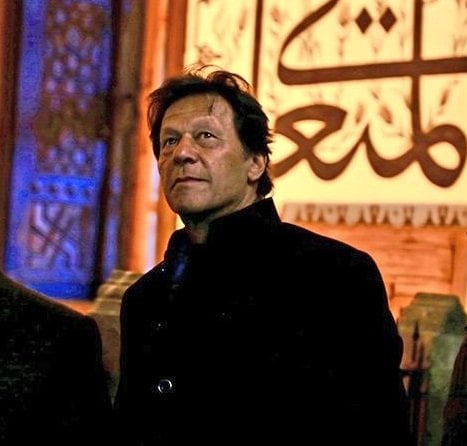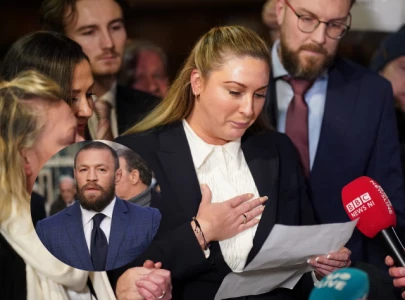
This column was avoided for long but being a bystander is not an option. Raising the right noise with required decibels is a civic responsibility and that civic responsibility needs to be performed.
Who voted for tabdeeli? The middle class, the upper middle class, the salaried cadre, the womenfolk, the have-nots, the hopefuls and those who wanted to try a third option away from the tainted PML-N and PPP. Who supported tabdeeli? Since most of the above cadre is well represented in the ‘Establishment’, there was finger-pointing in that direction, hence the title of a “selected” PM. What was the perception of tabdeeli? The common man just wanted life to be easier with food on his table and his country ruled by incorruptible leaders who could make a difference. The urbanite middle class voted for dignity, transparency and a rule-based system with clear national direction, intelligent consensus and none of the dirt and filth attached to the erstwhile governments. This educated cadre rightly did not expect quick results and ill-thought fixes. But they expected — borrowing from the military phraseology — a political grand strategy. Nobody expected fumbling, U-turns, lack of confidence, ineptitude, knee-jerk reactions and utter lack of sensitivity to the problems of the poor. It was not to be more of the same.
The politics of agitation under the PTI that climaxed with the 2014 Islamabad dharna continues to this day. If the party spends half as much time improving its governance, delivery and performance, as it spends defending itself in TV talk-shows and on social media, things will be different. If energies spent by Imran Khan, pursuing the crusade of “getting corrupt to the gallows” and then compromising by releasing those very accused, are spent in improving PTI’s subpar performance, the country will be in a different mood. If some of the wise, honest but unflatteringly upright counsel, that is available to any leader in this country unless he or she sees him/herself as aql-e-kul (epitome of ultimate wisdom), had been heeded to in picking the right man for the right job rather than petty likes and dislikes and preference for jiyala style faithfulness, the much-trumpeted tabdeeli would have been visible.
Yes, people were patient, they wanted to give the inexperienced cabal the opportunity and time to steer the country in right direction, but time is limited and patience runs thin. If tabdeeli was discernible, people, even the less privileged, were willing to endure hardships for some time. But when direction is not clear and there is no hope of such clarity, with the government devoting more time and all energies towards political point-scoring and making noises louder than the opposition, the result is a sad loss of honest narrative both among the rulers and the ruled. A colleague recently interacted with university students and came out worried. The youth, he said, see no future and no hope. Leaders inspire and instill hope rather than deflecting blame all the time. If and when they are unable to inspire, hope dies and the society is adrift. And that is the beginning of a catastrophic unraveling.
Much has been said about the poor state of the economy and its handlers, who are reportedly more interested in returning the installments of loans with interest to the lending organisations, rather than any social consequences. It does not take an Einstein to see the pitfalls of this approach. The World Bank was not dupe to appoint a political economist of the calibre of late Dr Mahbubul Haque, to study and advise the Bank on social ramifications of their loaning policies. The callousness of the IMF programme and the total surrender of government’s economic team, to some, does smack of an ulterior motive. That may not be the case, but in crises, perceptions matter more than realities. Every now and then, stories are churned out by the government media and financial teams about improvements in this-or-that economic indicators, with no visible improvement on the ground. What the street sees is runaway inflation, soaring prices of food in all categories and continuous increase in the rates of fuel and utilities with no end in sight.
The rupee was depreciated on the advice and urging of these economic wizards by a swooping 30 to 40 per cent in the hope of boosting exports, which has not happened. Even elementary teachers of economics know that Pakistan has an import-driven economy like Korea, Japan etc; who import raw material to export finished goods. Stagflation, partially caused by strangulation of imports, cannot be hidden behind the economic jargon of PTI’s economic experts.
The once-mighty real-estate sector is in ruins with no hope of early resurrection. The 50 million homes — the flagship project of the PTI — so far remains a pipe dream. People are holding on to money, as any sizeable potential transaction would invite scrutiny by the FBR. In the frenzy to meet economic targets, all relevant government departments, especially in Punjab, are resorting to blatant harassment and blackmail, sometimes for services they never deliver. Small businesses are closing with companies laying off and failing — all apparently going unnoticed or uncared for by the wizards of the PTI.
Yes, the mantra of being on one page with the Establishment is good to feel good, but so was the case with Nawaz Sharif when he hand-picked the then military leadership from down the seniority list. It starts like this. The popular disaffection gleaned by the military is conveyed to civilian leadership through sincere advices for course correction. By the way, the military has no clue of the economy. When the discontent becomes a noise and the noise a crescendo, the die is cast for tabdeeli. Military support is neither unlimited, nor unconditional and almost always sensitive to the deafening crescendo. One earnestly hopes the dying pangs don’t become the death of a dream that once upon a time, not long ago, was PTI and its Kaptaan.
Published in The Express Tribune, January 30th, 2020.
Like Opinion & Editorial on Facebook, follow @ETOpEd on Twitter to receive all updates on all our daily pieces.












COMMENTS (1)
Comments are moderated and generally will be posted if they are on-topic and not abusive.
For more information, please see our Comments FAQ